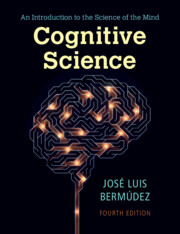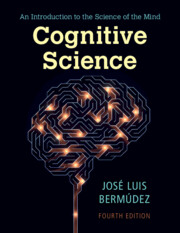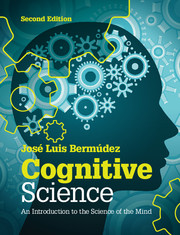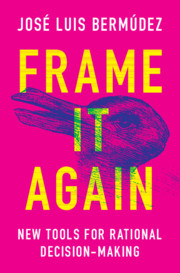Cognitive Science
This exciting textbook introduces students to the dynamic vibrant area of cognitive science - the scientific study of the mind and cognition. Cognitive science draws upon many academic disciplines, including psychology, computer science, philosophy, linguistics and neuroscience. This is the first textbook to present a unified view of cognitive science as a discipline in its own right, with a distinctive approach to studying the mind. Students are introduced to the cognitive scientist's 'toolkit' - the vast range of techniques and tools that cognitive scientists can use to study the mind. The book presents the main theoretical models that cognitive scientists are currently using, and shows how those models are being applied to unlock the mysteries of the human mind. Cognitive Science is replete with examples, illustrations, and applications, and draws on cutting-edge research and new developments to explore both the achievements that cognitive scientists have made, and the challenges that lie ahead.
- Treats cognitive science as a discipline in its own right
- Organised thematically instead of by discipline so that students understand the problems and solutions of cognitive science rather than the problems and solutions of the subjects that contribute to it
- Discussion of theory is firmly rooted in explanations of examples and applications so that students learn the uses of cognitive science and the full 'toolkit' of techniques used by scientists
Reviews & endorsements
'The text is engaging, well-crafted for an undergraduate audience, and is sure to inspire a generation of students.' Michael Spivey, University of California, Merced
'This book is the most carefully written, thorough, up-to-date, and accessible single-author textbook on the theoretical issues of cognitive science I have read.' John Douard, Department of Philosophy, Rutgers University
'Bermúdez presents here an approachable story of an integrated cognitive science that may well succeed where others have failed at defining the goals and ambitions of what an introductory course in cognitive science should try to do.' Anthony Beavers, Director of Cognitive Science, University of Evansville
'This book's breadth and depth of coverage is truly impressive. Bermúdez explicates the science of the mind in a sophisticated yet understandable fashion, from its traditional roots in symbol processing to exciting new advances in dynamic, embodied, and situated cognition.' Rob Goldstone, Professor of Psychology and Director, Cognitive Science Program, Indiana University
'The Bermúdez text represents an accessible and thoughtful introduction to cognitive science.' Karl Haberlandt, Professor of Psychology, Trinity College, Connecticut
'The author does a good job reminding the reader why particular material is presented … [he] has a nice touch for providing just enough detail for the reader to understand examples … The pedagogical aids are well designed … Each chapter includes a brief summary and a checklist … students will appreciate the brevity of the checklists, which are simply numbered lists of key points … paints a coherent picture of the field and leaves us hopeful that we can actually understand something about the mind.' David S. Kreiner, PsycCRITIQUES
'Bermúdez's book is an outstanding work; it will prove to be of benefit to both students and their teachers and it makes many important contributions to several ongoing debates.' Teorema
Product details
August 2010Hardback
9780521882002
516 pages
254 × 195 × 21 mm
1.26kg
129 colour illus. 9 tables
Replaced by 9780521708371
Table of Contents
- Preface
- Part I. Historical Landmarks: Introduction to Part I
- 1. The prehistory of cognitive science
- 2. The discipline matures: three milestones
- 3. The turn to the brain
- Part II. The Integration Challenge: Introduction to Part II
- 4. Cognitive science and the integration challenge
- 5. Tackling the integration challenge
- Part III. Models of Information-Processing: Introduction to Part III
- 6. Physical symbol systems and the language of thought
- 7. Applying the symbolic paradigm
- 8. Neural networks and distributed information-processing
- 9. Neural network models of cognitive processes
- Part IV. The Organization of the Mind: Introduction to Part IV
- 10. How modular is the mind?
- 11. Using neuroscience to study the organization of the mind?
- 12. A case study: is there a theory of mind module?
- Part V. New Horizons:
- 13. New horizons: dynamical systems and situated cognition
- 14. Afterword
- Glossary.









